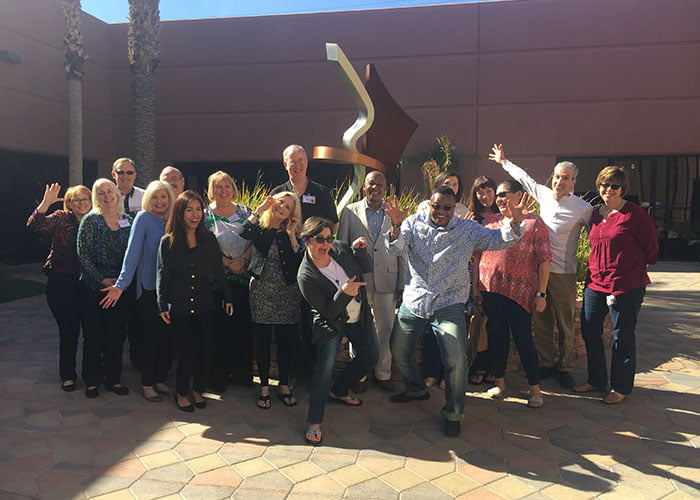Highlight in the already enlightening dialogue between Ken Gergen and Danielle Zandee was their little play about how conversations can degenerate, and how to prevent this – or even turn them into a generative alternative. Subsequently, Danielle asked the audience to think about ways to ‘interweave’ or ‘interlock’ the micro practices into day to day conversations, and make them sustainable. Besides the fact that Ken was struggling with the challenge to keep the practices ‘fresh’, one could question Danielle’s question, referring to the great philosopher Richard Rorty and his theory around the contingency of language. In fact, he suggests (!) that we are simply unable to ‘interlock’ practices in the conversation, because conversation itself is an in-between-emerging process, causing the language to develop, including the interpretations and meanings. You could say then that we have a solution to Ken’s struggle, because conversation itself undergoes renewal. But I’m afraid this renewal does not always move into a generative direction, so to speak. I love Rorty’s book title ‘Take care of freedom, and truth will take care of itself’.
Imagine micro practices taking care of their generativity themselves…!
Let me give you an example. Until the age of 50 years (…) I was used to talk about “non-profit organizations”. And I was very unaware of the degenerative substance of my vocabulary. Until that afternoon in Genk, where I attended the closing conference of the First Flemish AI Learning Network. On a certain slide I read the word “social profit organization” and the words struck in my mouth. The Belgian next to me said: “Ala, you Dutch people, you call this non-profit, don’t you?” I was flabbergasted, in a positive way that is. From that day I never used the word ‘non-profit’ anymore. How silly can it be, calling an organization by what it not is? (Do we call a human being a not-dog?) This micro practice ‘social profit in stead of non-profit’ is so strong that it does the trick itself. And as far as I can recall, everyone I told this story, adopted the ‘social-profit’ alternative immediately.
I would like to call this a self interweaving micro practice. The question is: how do we find the strong, self-emerging ones? My suggestion would be to approach this quest in a sort of Darwinian way: let the strongest, the most intelligent and the ones most adaptive to change be the surviving micro practices. And let us – as Koen van Mechelen said – keep on making new combinations to fill the linguistic evolution as appreciative and as generative as possible.
What do you think of ‘birth line’ in stead of ‘dead line’? Is it going to survive? Yes, as far as the WAIC Media Crew is concerned. During Diana Whitney’s great performance I received an SMS from Arno Vansichen: “What about a Warm Idea in stead of a Cool Idea?” My reply: “Idea, I dear, You dear, We dear… What about a Wedea in stead of an Idea?” Arno: “Windeed!”
Written by: Cees Hoogendijk. This article was originally published on the 2012WAIC website on April 27, 2012.


Add your comment now using your favorite social account or Click Here To Login
